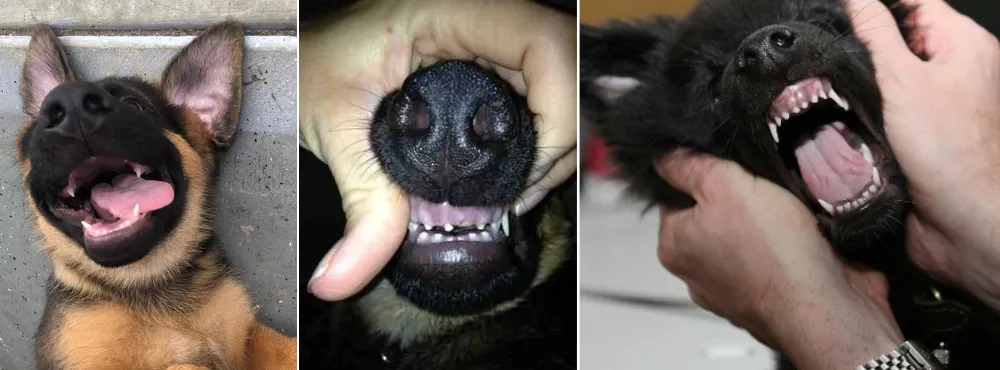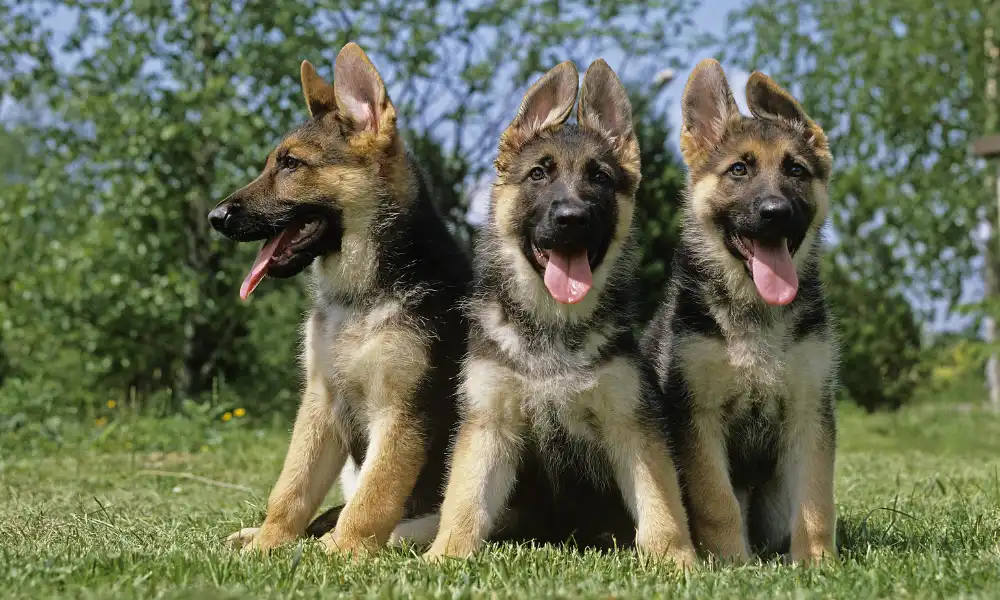Do you want to know whether German Shepherd puppies lose their teeth or not? You’re in the right place.
Like all dog breeds, German Shepherd puppies experience a process known as teething. During this phase, they lose their milk teeth to make way for their adult set. This is a natural and essential phase in their development.
Typically, German Shepherd puppies begin to lose their deciduous (puppy or milk teeth) teeth around 12 to 16 weeks (around 3 to 4 months) of age. The entire teething process is generally completed by the time they reach 6months.

Initially, they have 28 baby teeth, which are relatively sharp and small. As they transition into adulthood, these are replaced by 42 permanent teeth.
Open this article: How to Determine the Age of German Shepherd Puppy or Dog and go to the section Dental Anatomy of Dogs to read in detail about Deciduous Teeth and Permanent Teeth, and 4 types, including Incisors, Canines, Premolars, and Molars.
Related: German Shepherd Teeth Problems: Causes, Prevention, Treatment
During the teething period, it’s common for puppies to experience discomfort and irritation in their gums. Consequently, they may exhibit increased chewing behavior to alleviate their discomfort.
Providing appropriate teething toys can help manage this natural urge and protect household items from being chewed. Additionally, cold or frozen toys can offer soothing relief for sore gums.

It’s important for owners to regularly monitor the teething process to ensure that new teeth are erupting correctly. Occasionally, some puppies may experience retained deciduous teeth, which can affect the alignment and development of permanent teeth. Retained teeth might necessitate a visit to the veterinarian for extraction to prevent future dental issues.
|| DON’T MISS! Today’s Deals on Chewy – Pet Foods, Products, Supplies, Toys and more. Additionally, visit our Etsy & Online Store for German Shepherd merchandise.
Proper dental care during this stage is critical for the overall oral health of the German Shepherd. In rare cases, complications such as misaligned teeth or infections can arise, requiring professional intervention.

Overall, the teething phase is a temporary yet significant period for German Shepherd puppies. With proper care, attention, and management, puppies can transition smoothly into adulthood with healthy teeth.
If you like this post then don’t forget to share with other people. Share your feedback in the comment section below.
Also Read
- What are Challenges of Training & Raising German Shepherd?
- Male or Female German Shepherd: Which One is Better?
- How to Determine Most Desirable Traits in a German Shepherd?
- How to Raise a German Shepherd Puppy at Home
- Monthly & Annual Expenses of Owning a German Shepherd
- How to Know German Shepherd Breeder is Genuine?
- Effective Methods for Crate Training German Shepherd Puppy
- Common German Shepherd Health Myths Debunked




Leave a Reply